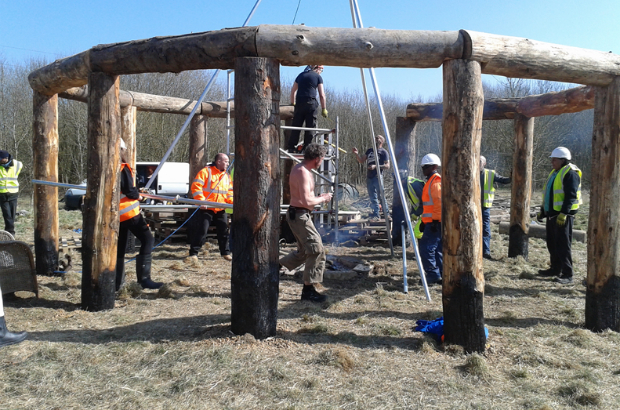
From Brazil to Luton…
In 2014 the Centre for Social Action supported an innovative approach to community development and to improving the well-being and employability of the long-term unemployed. It was based on a Brazilian approach with social action at its core – the Organisation Workshop – and the project enabled this approach to be trialled for the first time in the UK at Marsh Farm in Luton.
Cabinet Office commissioned an evaluation to understand how the project worked and to learn lessons for future implementations in the UK. The findings are now in and you can see a summary here. So what is an Organisation Workshop and how did the Marsh Farm project go?
A ‘Large-Group Psychology’ Approach
Organisation Workshops (OWs) are based on ‘large-group psychology’, often bringing together groups of 100 people or more, and on principles of self-organising and learning by doing. Participants are tasked with delivering a project that is of benefit to the community. They must organise themselves to deliver it with carefully calibrated levels of external support that is non-directive and allows participants to learn by trial and error, in a mutually supportive environment. The aim of the project is to trigger a step change for the participants, in terms of their self-confidence, their relationships, their organisational and other skills, and their capacity to improve their own lives.
The project is only the first of three phases. In the second phase participants are helped to develop business plans for local community enterprises, leading to a final phase of these enterprises being established. So the approach is ambitious by aiming to foster new community businesses as well as moving the long-term unemployed into self-employment.
What happened in Marsh Farm?
In Marsh Farm a total of 45 long-term unemployed were recruited onto the programme some with particularly complex problems, struggling with depression, lack of confidence and low self-esteem. Together they transformed a 5 acre abandoned field into a community resource complete with paths, orchard, flower-beds, vegetable garden, bee-hives and ‘iron-age replica round house’.
As of Spring 2016, the programme is well into phase 2 with a number of new community enterprises currently in development or starting to trade around bee-keeping, a community farm, a building co-operative, a catering business, music related and IT services. It is too early to say how successful these will eventually be and which businesses will sustain – but some of the business ideas are clearly becoming a reality.
What were the outcomes for participants?
The evaluation was largely based on interviews with those involved in delivering the programme as well as those participating in it, and with the public sector services that supported the project. Interviews with participants indicated they felt they benefitted in a number of ways including gaining confidence, making new friendships, having a greater capacity to cope and increased resilience. Some gained valuable employability skills and qualifications in areas such as health and safety, hygiene, employment rights, customer services, finance and administration.
By the end of Phase 1, 44% of participants had been able to find mainstream jobs and a further 28% remain on the programme progressing towards setting up their own community enterprises. While it is not possible to conduct a robust comparison with similar programmes – the evaluators found that the employment outcomes generally compared favourably with relevant national support programmes for the long term unemployed.
Next steps
There were a lot of lessons learned and the evaluators highlighted the need for more trials of this approach, as well as suggesting the establishment of a national incubator organisation for OWs. It is perhaps premature for anyone to consider setting up such an incubator at this stage. For the time being we will see how the community enterprises in Marsh Farm develop, and all eyes will soon be on Hastings which will be the next place in the UK to trial this innovative approach.
Contact us if you want more information
If you are interested in Organisation Workshops and would like to see the detailed full report with lessons learned please let us know below and we will send it to you.
2 comments
Comment by Nigel Robins posted on
This sounds absolutely fascinating. I'd really like to know more to see how I can use these techniques with my own environmental volunteers. How were realistic budgets set?
Comment by Tom Annable posted on
Nigel,
Many thanks for your interest and for getting in touch.
There are indeed very interesting learnings from this initiative - we will send you the full evaluation report.